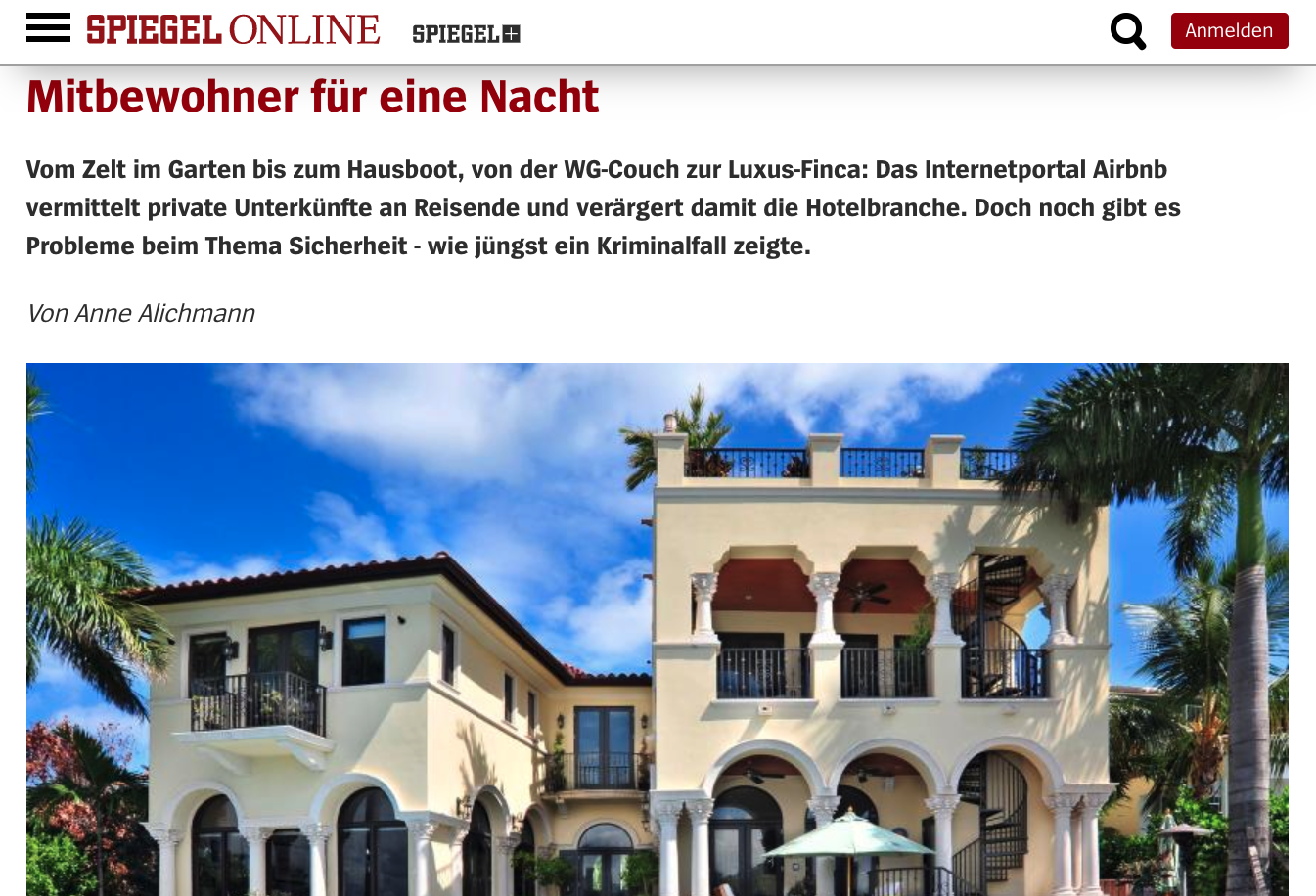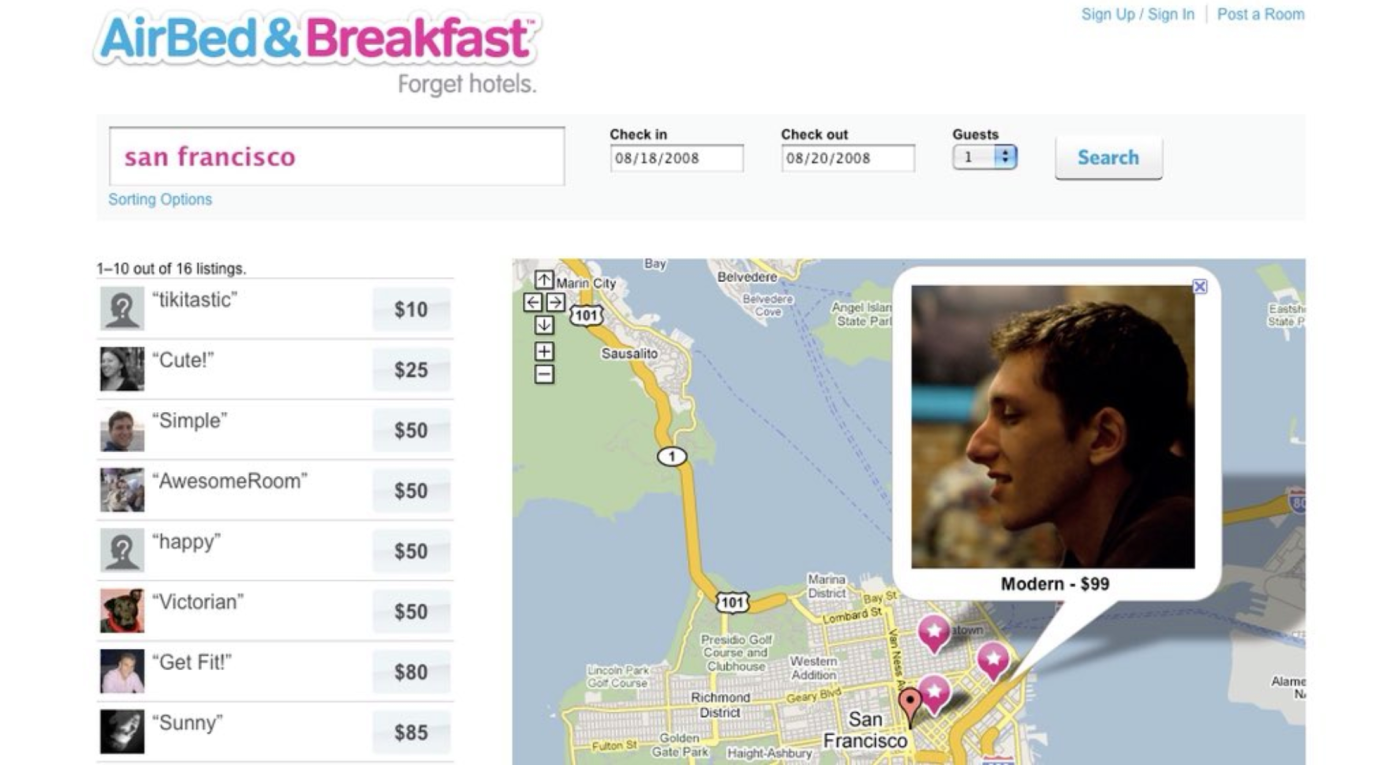Storytelling Close-up Airbnb: From Hotel Horror to Travel Muse
Airbnb is the world’s leading online platform for arranging private vacation rentals. But the strong brand and the unique storytelling approach were not there from the start.
In 2008, the still inexperienced founders started with a clear and above all simple mission: Forget hotels! Their platform for short-term and apartment rentals for price-conscious travelers came without any frills or far-reaching vision. One strong argument in particular was emphasized: the price. It was communicated aggressively, with a clear opponent, namely the hotels. However, the company also had a lot to do with raising awareness and reducing the fear of living with or inviting strangers. The first scandals involving vandalized apartments also taught Airbnb to optimize not only its communication but also the product itself.

“Belong Anywhere” – The Storytelling Reboot
The major rebranding and continuous expansion of Airbnb storytelling began around 2013. With “Belong Anywhere” and a new, more symbolic logo, the company has been pursuing a new mission since 2014. This goes beyond simply renting or booking. With the help of new messages, such as the call to discover the world, the aim is to create a cult of travel. Away from dull rooms or anonymous hotels, towards enjoying diversity and a sense of belonging anywhere in the world.
The founders themselves announced the rebranding in a personal blog post. In it, they look back on their founding story and combine it with their new values. They also provide the new logo with a fitting story and even a new name. A related explanatory video then introduces what the future communication of the travel portal should be about: People, places and love. The price argument takes a back seat.
In the first few years of its foundation, Airbnb tended to present itself as a hero. It competed against a specific opponent, namely the hotel industry. But also against abstract opponents, such as general prejudices towards the business model. Since the company started using storytelling, however, it has tended to act as a mentor. It addresses the needs for growth in its target group in terms of wholeness and richness – in other words, being part of a community and embarking on new paths – and motivates them. On the road to a new world in which people should feel welcome anywhere in the world, completely different opponents are now emerging, such as intolerance. It is therefore not surprising that the company is also taking a stance on issues such as the refugee crisis or marriage for all, which at first glance have nothing to do with booking travel.
Instagram, YouTube & Co. – People, Places and Love
But back to the daily storytelling of Airbnb. Content marketing is an important building block for sharing messages and values with the target group. When we take a look at the individual channels, we quickly realize what the content is all about: People, places and love.
For example, on Instagram, the audience gets to know numerous superhosts and their accommodations in a personal picture series. On the traveler side, Airbnb has cleverly managed to both interactively involve the community and always provide fresh, high-quality content. Travelers tag their experiences with hashtags such as #airbnbphoto or #airbnbexperience to draw the company’s attention to these photos. Carefully curated, accompanied by beautiful descriptions and, of course, only with credit to the original photographer, some of these photos are posted on Airbnb’s official Instagram channel. Users are happy to see their pictures getting more attention, and the company has a huge amount of content.
Let’s take a look at YouTube as yet another channel. After all, over 200,000 subscribers follow Airbnb’s video content here. At first glance, we can already see a similar common thread in the playlists: special places and stories from hosts and travelers. The community spirit is further cultivated by combining different videos on one country. Only rarely do we see content that provides purely practical instructions on hosting or booking. Instead, the pioneer mentor and the need for growth for new experiences is addressed with the “Not Yet Trending” series, for example. It focuses on places that for some may be more of a second or third choice in a particular country. Instead of hyping Cape Town or Johannesburg, for example, travelers are encouraged to consider the less-visited South African city of Durban.
Up-to-the-minute events are a great conversation starter on social media. For example, Airbnb used storytelling at the 2016 Oscars. As one of the main sponsors, they were not allowed to advertise during the event, so they had to try it through the back door. For this, they relied on their Twitter community. Using the hashtag #LiveInTheMovies, Twitter users were able to tell Airbnb which movie they would like to live in. The company then selected suitable travel inspirations.
Airbnb and the Press – Balancing Act between Public Affairs and PR Stunts
When it comes to public relations, Airbnb still has to deal with another opponent for the most part, namely legislation. In many cities, the platform is seen as the cause of rising housing prices and excessive tourism and is restricted by law accordingly. Specially founded initiatives, such as Airbnb Citizen Berlin, are trying to create a more positive image with host stories. But when it’s not about defending themselves, Airbnb also uses storytelling in the traditional press in the form of muse content on the need for abundance. With spectacular collaborations and PR stunts, the platform inspires people to go one step further in their search for travel accommodation. Whether it’s an overnight stay in an IKEA department store, in the Louvre or on the Thames in London. To raise awareness of the new Experiences offer, a 3-month stay in an Italian village was advertised, including cooking, olive oil and pottery courses. An offer that hit the headlines worldwide.
Share this article
Related articles

8 April 2025







